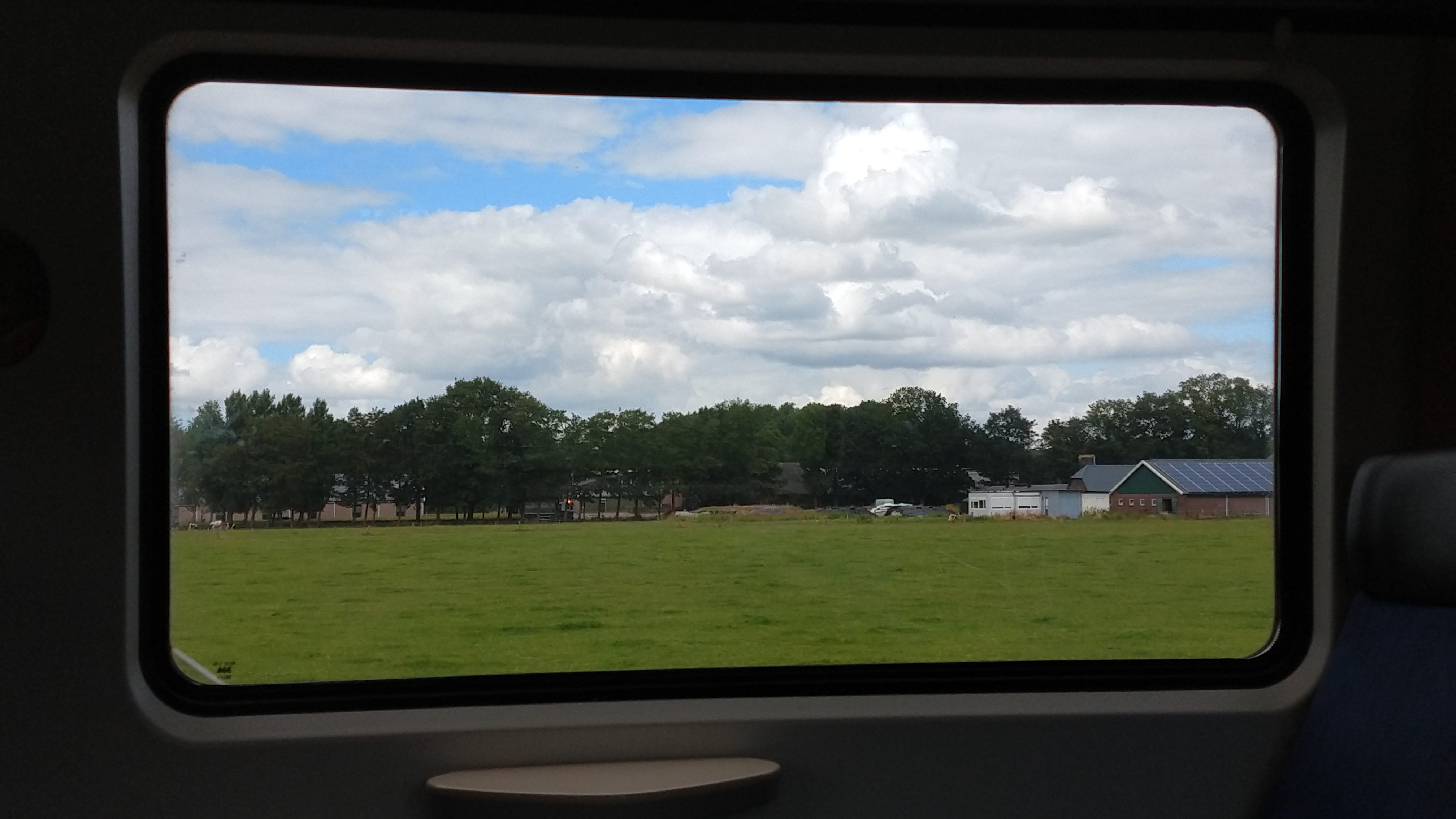In four years
Some people may say that thinking about the future makes you not live in the moment. I beg to differ. Thoughts of the future as well as of the past always bleed into this ‘now’ and change it and form it and color it.

When I was young I always thought of the past, that is, my personal life’s past. I repeated what I experienced in my mind, and did so more or less always. I thought this was normal. Only when I entered student life and the many new acquaintances asked about my life, I noticed they were shocked that I could relate certain events always to a certain year and age and sometimes even a month of the year. I began to feel weird. I comforted myself with the thought that it must be because I am a writer at heart. I always write so to speak about everything that I encounter in my mind. But later I forgot these reflective thoughts again, when struggling to find a job and finance this life at all.
More years later, around forty, they call it midlife, I read two books that shifted my view again. Abyssinian Chronicles by Moses Isegawa, and Curriculum Vitae by Victor Klemperer. It was on a holiday and I read them on a blanket in the shade of a big tree that kept the hot summer sun from burning any thoughts out. Whereas the lastmentioned book is a true life memoir, the Isegawa book is fiction, but obviously based on a rich trove of life experiences and projected as a memoit. They gave me a new view of my childhood mental writing on my daily life. What if, as a child, I felt that I would write my memoires later, and had been unconsciously training for it? That even comforted me more.
Now I am gradually progressing in that senior stage of life, and I don’t know about all these explanations and self-descriptions anymore. Especially since after reading Klemperer and Isegawa, the mental writing slowly disappeared. I realised more and more that memorising is not that important. That a human life is only a small link in an endless web of millions of consciousnesses and intentions, not even only human ones; all life has its own aims and leaves its own traces. Especially digital life impresses on us that there may be even too many traces and we should be selecting and erasing them to a certain extent.
And now life has even made me turn the entire process around, now that an artificial boundary will affect me in four years: retirement. I realise how blessed I am to have been able to work for so many years, even if, as for many academics, it took so long before that tenured job came on my path. But now I have to think of the future: when all the automatic obligations of pressing student mails, grades and ever so many course manuals will not be there anymore, how will I make the transition to retired life as smooth and good as possible?
Luckily, in this profession, we do not have to abruptly leave working life. As many others, I think it will be nice to have more relaxed time to study and do the research I still find meaningful. I hope my network will still value my over a long time built experience and expertise on certain questions and how to approach them.
And suddenly I realised this one thing I often not even have time to think about: that presently I don’t have enough time to write my blog. After retirement, if possible, and if I like the idea still then, I may start reading the books I don’t have enough time for now and review them here. Or just reflect on them. I could write as often as I want.

And that thought made me go here and write, in the train, returning from a meeting. A time I often spend with digital distraction. So here is this new blog piece: on how thinking of the future made my train ride!
